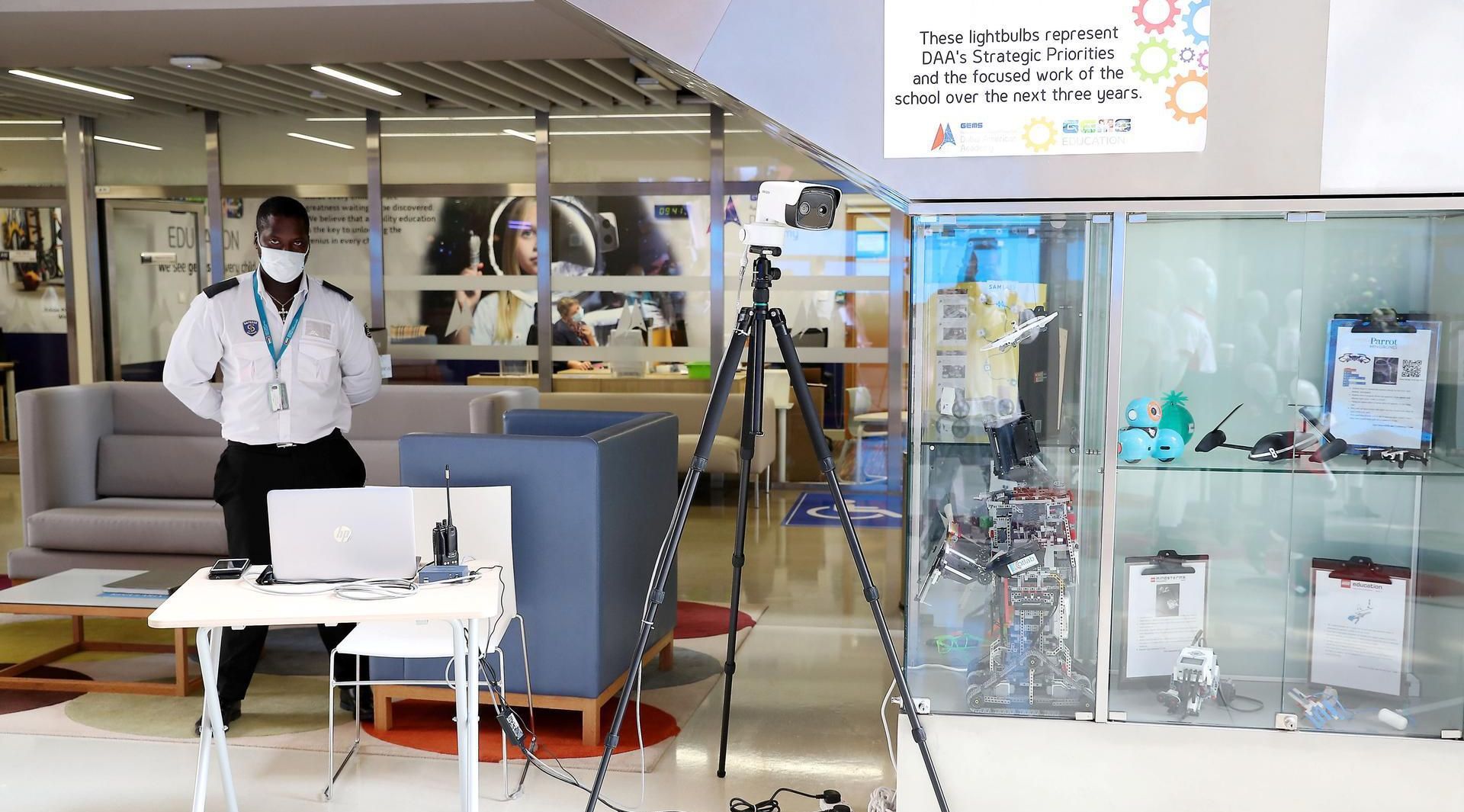UAE school leaders have expressed confidence in recovering from the economic impact of the COVID-19 pandemic. It is important to note that schools in the UAE and other countries across the world have ensured a wide range of safety measures to ensure the health and well-being of pupils as well as accelerate the transition to remote learning during the pandemic.
According to Educational data provider ISC research, the full impact of the pandemic on the education sector may be felt by the coming academic year. The data provider has been collecting information from leading international schools for almost 27 years now.
Noting that UAE schools have been analysing the cost of the pandemic, a shift to affordability and freezing of fees can become an attractive trend for pupils.
Nalini Cook, Europe, Middle East and Africa head of research at ISC Research, underlined that schools had put extra investment in purchasing cleaning resources, social distancing tools such as signage and barriers, thermal scanners, licences for online platforms, and devices for children and teachers to ensure their safety at premise during the pandemic.
In addition, a number of schools have increased their digital infrastructure and staff to cover divided classes and quarantine and isolation periods.
She further named community care, wellbeing initiatives, and a strong distance learning programme as key for schools to recover.
"Bouncing back is important but many, whilst looking for a return to some normality and familiarity are also exploring what has been learned over the last 18 months and so the bounce back may actually be a bounce ‘forward’ rather than ‘back," she added.
UAE schools focus on safety
In November 2020, schools across the UAE expressed confidence in returning from the economic impact of the pandemic after boosting efforts to meet COVID-19 safety regulations at their premise.
Notably, schools have invested tens of thousand of dirhams in ensuring that premises are safe to welcome back pupils for the coming academic year.
Speaking to media, Fiona Cottam, principal of Hartland International School in Dubai, said that the pandemic posed unknown challenges for all industries, including the education sector.
Dubai’s Hartland International School has spent approximately Dh100,000 ($27,000) in setting up a medical room and enhancing sanitisation measures to meet the required guidelines to reopen the institute to students.
Furthermore, the ISC Research revealed that the economic impact of the virus reduced the disposable income for some families, thereby limiting their access to private education. International schools have also pointed out that some pupils decided to move to more affordable educational institutes.
On the other hand, some schools said they received requests from parents about their payment plans, fee discounts, bursaries or loans to cover school fees in the short-term.
Demand for Low-cost schools increases
Diane Glass, commercial director at ISC Research, said that some schools globally witnessed decrease in admissions, while a few institutions closed down or decided to freeze their fees.
She added that Middle East has witnessed a growth in the number of mid-market schools after the pandemic.
"It was probably the first part of the world that began to develop these mid-market fee point schools to appeal to a much wider audience," Glass said.
She also explained a number of positive things going across the Middle East in various key sectors including business.
"Certainly parts of the world that are dependent on tourism have suffered and that has affected opportunities for international schools,” she said.
As per reports, at least 10 new private schools are going to open in Dubai for the next academic year, increasing the number of schools in the emirate to 220.
Some of these schools are providing low-cost education options. At the same time, a private sector operator is going to start an initiative called Dubai Schools with government funding under a new model for the city.
During ARN's Business Breakfast radio show recently, Dino Varkey, chief executive of Gems Education, discussed the impact of the pandemic on various sectors.
He highlighted that the school group has witnessed a decline in the number of enrolments for the first time in 60 years. However, the group is hopeful to increase the numbers to the pre-pandemic levels by next year. Mr Varkey said that the group contracted enrollments by 3 per cent, the first time in 60 years.
"But given the pandemic, I think, not surprising, certainly, we would see us recovering that number. And if we have a similar summer, as we have done over the last couple of years, I would hope that we'd be ahead of that as well,” Varkey added.
Alan Williamson, chief executive of Taaleem, said families and staff have called for enhancing safety, security and well-being of everyone in the wake of the pandemic.
“Parents are looking for security and I think the bigger brands like Taaleem are arguably where parents will go at a time of uncertainty,” said Mr Williamson.
 AR
AR UR
UR
